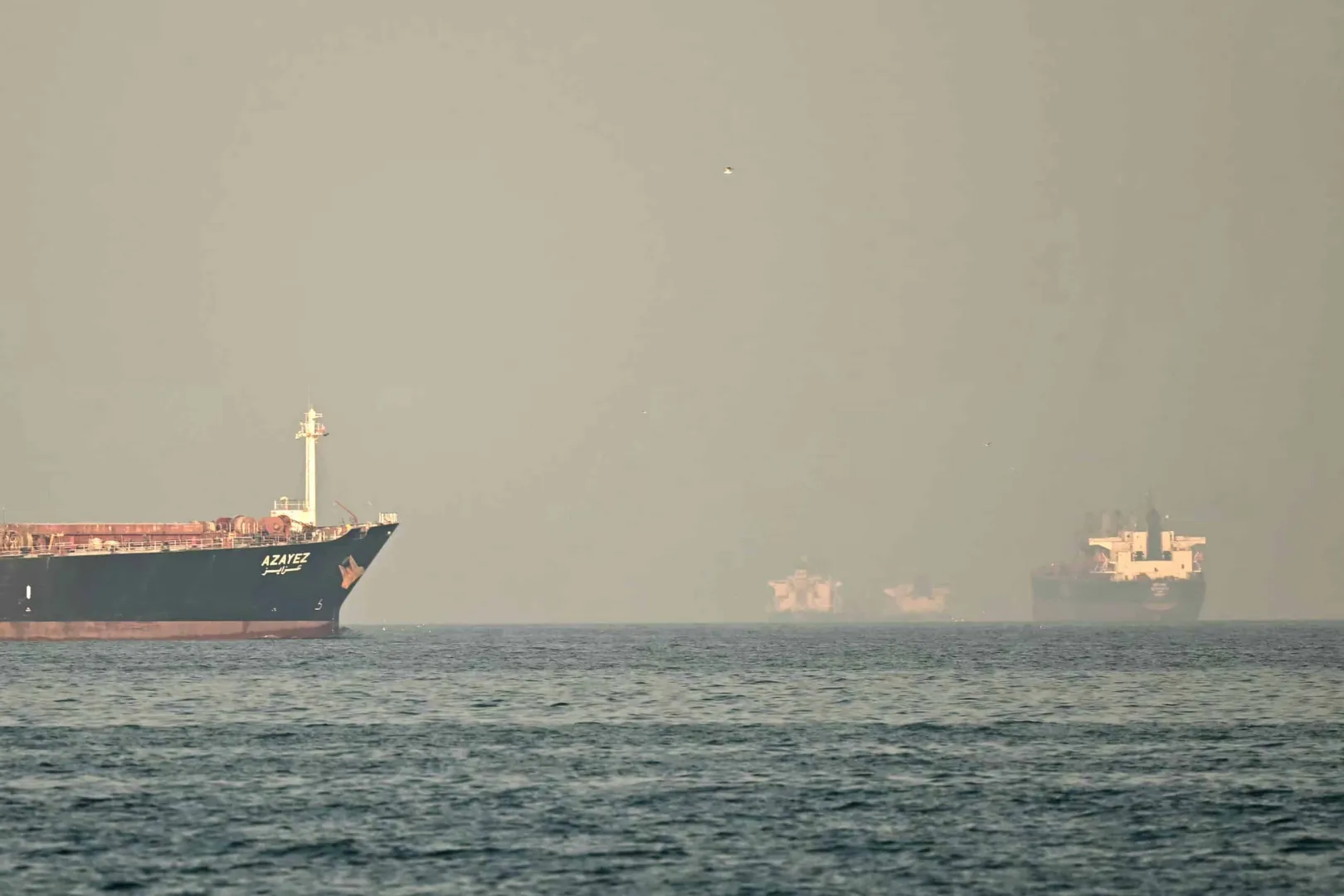Turkey’s economy has slowed to its weakest pace since the onset of the Covid-19 pandemic, highlighting the impact of the government’s aggressive monetary tightening measures aimed at combating the nation’s persistent inflation crisis. The country’s Gross Domestic Product (GDP) grew at an annual rate of just 2.5% in the second quarter of 2024, a sharp decline from the revised 5.3% growth recorded in the first quarter. This deceleration marks the most sluggish economic expansion since mid-2020, when the pandemic brought global economies to a near standstill.
The Impact of High Interest Rates on Turkey’s Economy
The slowdown in economic growth is largely attributed to the Central Bank of Turkey’s decision to drastically raise interest rates, a move designed to rein in the runaway inflation that has plagued the country for years. After President Recep Tayyip Erdoğan’s re-election in May 2023, the central bank, under the leadership of former Federal Reserve economist Hafize Gaye Erkan, raised interest rates from 8.5% to a staggering 50%. This aggressive monetary policy, coupled with fiscal tightening measures, has begun to take a toll on both businesses and consumers, as the cost of borrowing has soared and consumer spending has cooled.
Turkey’s decelerating growth is a direct consequence of these high borrowing costs, which have rippled through the country’s $1 trillion economy, affecting key industries and sectors. Manufacturing activity, for instance, has contracted for five consecutive months as of August 2024, according to data from the Istanbul Chamber of Industry. The contraction in manufacturing is a clear indicator that businesses are struggling to cope with the increased cost of credit and the subsequent decline in demand.
Challenges in the Manufacturing and Consumer Sectors
The slowdown in manufacturing has been accompanied by a marked decrease in consumer spending, which had been a driving force behind Turkey’s previous economic expansion. One of the most telling signs of this shift is the 16% year-on-year decline in car sales reported in July 2024 by the Turkish Automotive Distributors’ and Mobility Association. Similarly, Arçelik, one of Turkey’s leading home appliance manufacturers, reported a “normalisation” in demand for white goods in the second quarter, signaling that consumer appetite for big-ticket items is waning.
The cooling of consumer spending is a critical development for Turkey’s economy, as it suggests that households are beginning to feel the strain of high interest rates and rising inflation. This is a significant shift from the past few years, where easy monetary policies had fueled consumer confidence and spending, even as inflation soared to record highs.
Inflation and the Road Ahead
Despite the economic slowdown, there are signs that Turkey’s inflationary pressures may be easing. After peaking at over 85% in late 2022, annual consumer price growth has slowed to 62% as of July 2024. This decline in inflation is a positive development for the central bank, which has set an ambitious target of bringing inflation down to 5% in the coming years. However, independent economists and policymakers caution that the hardest part of this battle is still ahead, as the effects of the monetary tightening continue to ripple through the economy.
The central bank’s latest survey of market participants indicates that inflation is expected to fall to 43% by the end of 2024, with further reductions anticipated in 2025. However, this forecast is contingent on the continued implementation of tight monetary policies and the successful management of domestic demand. William Jackson, an economist at Capital Economics in London, noted that “domestic demand needs to weaken further, and so policy will need to be kept tight for longer.” Jackson’s comments underscore the delicate balancing act that Turkey’s economic policymakers must perform to stabilize the economy without triggering a deep recession.
Political Implications and Erdoğan’s Dilemma
The economic slowdown presents a significant challenge for President Erdoğan, who has long touted Turkey’s rapid economic growth as one of his key achievements. Since coming to power in 2002, Erdoğan has presided over an era of significant economic expansion, often using stimulus measures to bolster growth and maintain his political base. However, the current economic environment, characterized by high inflation, soaring interest rates, and slowing growth, is putting Erdoğan’s economic legacy to the test.
The president’s decision to abandon his previous policy of low interest rates in favor of a more conventional approach has not been without controversy. While the move was necessary to address the inflation crisis, it has also led to a sharp increase in borrowing costs and a slowdown in economic activity. This shift in policy has been politically costly for Erdoğan, whose ruling Justice and Development Party (AKP) suffered its biggest-ever defeat in the March 2024 local elections. The economic weakness was a key factor in the AKP’s loss, as voters expressed their frustration with the rising cost of living and declining economic prospects.
Recent polls suggest that the AKP’s popularity has continued to decline throughout the summer of 2024, as economic conditions have deteriorated further. The prospect of prolonged economic pain could pose a significant threat to Erdoğan’s political future, especially if the government fails to deliver on its promise to bring inflation under control and restore economic stability.
Long-Term Economic Outlook
Looking ahead, the long-term outlook for Turkey’s economy remains uncertain. While the central bank’s efforts to curb inflation are showing early signs of success, the broader economic picture is still challenging. High interest rates are likely to remain in place for the foreseeable future, which will continue to exert pressure on businesses and consumers alike. In addition, the global economic environment, including fluctuations in commodity prices and exchange rates, could further complicate Turkey’s economic recovery.
Despite these challenges, some analysts believe that Turkey’s economy has the potential to rebound if the government can successfully manage the transition to a more sustainable growth model. This would require a shift away from the credit-fueled expansion of the past and towards a more balanced approach that prioritizes investment in productive sectors and reduces the country’s reliance on external financing.
The government’s new economic program, spearheaded by Finance Minister Mehmet Şimşek, aims to address these issues by stabilizing growth and reducing vulnerabilities in the economy. Şimşek has described the recent GDP data as a sign that growth is beginning to “stabilize,” but he has also acknowledged that the road ahead will be difficult. “We have left behind a difficult period in which we have significantly reduced vulnerabilities,” Şimşek said, adding that the government is committed to maintaining tight fiscal and monetary policies to ensure long-term stability.
Conclusion
Turkey’s economic slowdown to its weakest level since the Covid crisis is a clear indication of the challenges the country faces as it seeks to overcome years of high inflation and unsustainable growth. The central bank’s decision to raise interest rates to 50% has been effective in cooling inflation but has also slowed economic activity and put pressure on businesses and consumers. As Turkey navigates this challenging period, the government’s ability to balance the need for tight monetary policy with the goal of sustainable growth will be critical to the country’s future economic success.
For President Erdoğan and his administration, the stakes are high. The political fallout from the economic slowdown is already being felt, and the government’s ability to deliver on its promises of stability and growth will be key to maintaining public support in the years ahead. As Turkey’s economy continues to evolve, the coming months will be crucial in determining whether the country can successfully transition to a more stable and prosperous future.
photo source: Google
By: Montel Kamau
Serrari Financial Analyst
2nd September, 2024
Article, Financial and News Disclaimer
The Value of a Financial Advisor
While this article offers valuable insights, it is essential to recognize that personal finance can be highly complex and unique to each individual. A financial advisor provides professional expertise and personalized guidance to help you make well-informed decisions tailored to your specific circumstances and goals.
Beyond offering knowledge, a financial advisor serves as a trusted partner to help you stay disciplined, avoid common pitfalls, and remain focused on your long-term objectives. Their perspective and experience can complement your own efforts, enhancing your financial well-being and ensuring a more confident approach to managing your finances.
Disclaimer: This article is for informational purposes only and does not constitute financial advice. Readers are encouraged to consult a licensed financial advisor to obtain guidance specific to their financial situation.
Article and News Disclaimer
The information provided on www.serrarigroup.com is for general informational purposes only. While we strive to keep the information up to date and accurate, we make no representations or warranties of any kind, express or implied, about the completeness, accuracy, reliability, suitability, or availability with respect to the website or the information, products, services, or related graphics contained on the website for any purpose. Any reliance you place on such information is therefore strictly at your own risk.
www.serrarigroup.com is not responsible for any errors or omissions, or for the results obtained from the use of this information. All information on the website is provided on an as-is basis, with no guarantee of completeness, accuracy, timeliness, or of the results obtained from the use of this information, and without warranty of any kind, express or implied, including but not limited to warranties of performance, merchantability, and fitness for a particular purpose.
In no event will www.serrarigroup.com be liable to you or anyone else for any decision made or action taken in reliance on the information provided on the website or for any consequential, special, or similar damages, even if advised of the possibility of such damages.
The articles, news, and information presented on www.serrarigroup.com reflect the opinions of the respective authors and contributors and do not necessarily represent the views of the website or its management. Any views or opinions expressed are solely those of the individual authors and do not represent the website's views or opinions as a whole.
The content on www.serrarigroup.com may include links to external websites, which are provided for convenience and informational purposes only. We have no control over the nature, content, and availability of those sites. The inclusion of any links does not necessarily imply a recommendation or endorsement of the views expressed within them.
Every effort is made to keep the website up and running smoothly. However, www.serrarigroup.com takes no responsibility for, and will not be liable for, the website being temporarily unavailable due to technical issues beyond our control.
Please note that laws, regulations, and information can change rapidly, and we advise you to conduct further research and seek professional advice when necessary.
By using www.serrarigroup.com, you agree to this disclaimer and its terms. If you do not agree with this disclaimer, please do not use the website.
www.serrarigroup.com, reserves the right to update, modify, or remove any part of this disclaimer without prior notice. It is your responsibility to review this disclaimer periodically for changes.
Serrari Group 2025
















